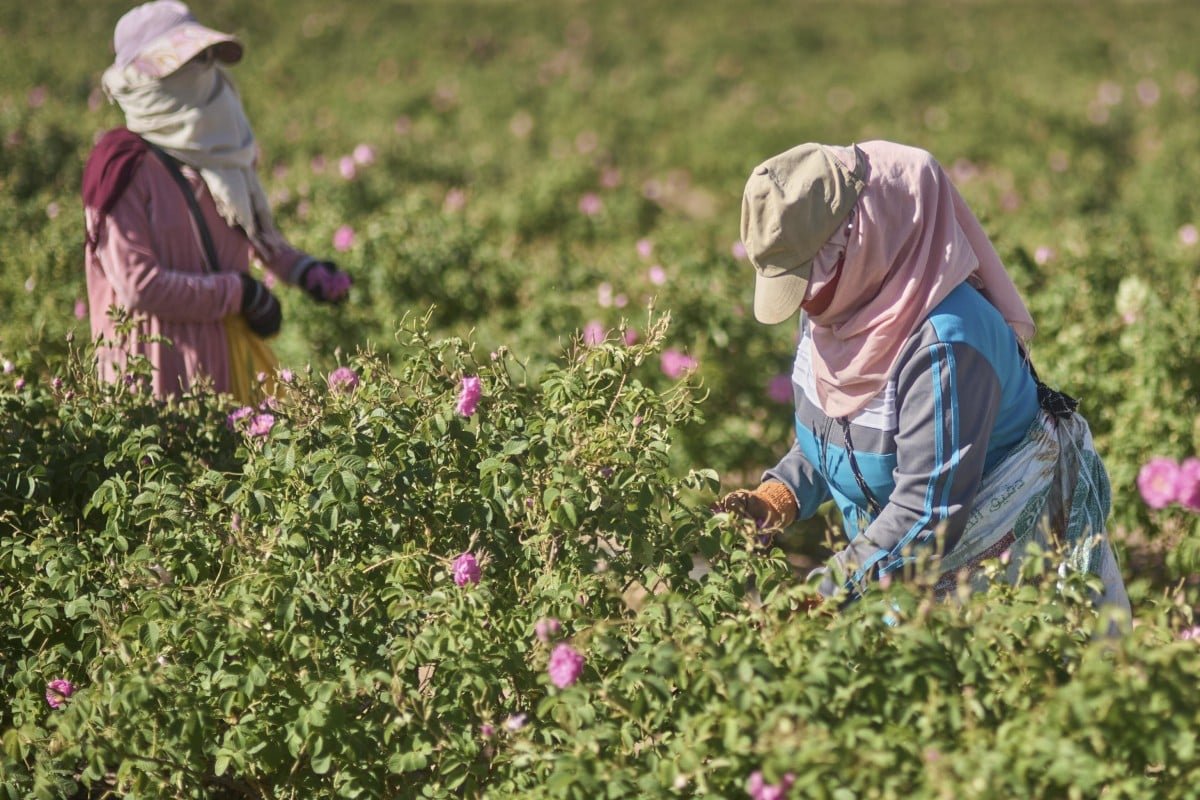Gloved and armed with shears, women move through the thorny rose fields of Kalaat M’Gouna, gathering fragrant Damask roses into wheelbarrows under a bright Moroccan sky. Thanks to generous rainfall and rare desert downpours this year, Morocco is witnessing an exceptional rose harvest, with yields expected to reach 4,800 tonnes—well above the average of recent years. The unique climate of the region, with its mild temperatures and low humidity, makes it ideal for cultivating this prized flower.
Kalaat M’Gouna, nestled in the High Atlas Mountains, celebrates its rose heritage with the annual International Rose Festival, now in its 60th year. The town bursts with pink during the festivities, from rose-shaped monuments and themed roundabouts to teenagers selling rose-themed souvenirs and taxis painted in pastel hues. Roadside signs in multiple languages—including English, French, Arabic, Japanese, and Amazigh—signal the global reach of the town’s cherished bloom.
This year, rose cultivation spans over 1,000 hectares and offers vital employment in a region with limited economic opportunities. Each hectare provides more than 120 days of work. The rose industry is hailed as a sustainable model, deeply woven into the region’s culture, from wedding traditions to music and dance. Small-scale farmers tend the rose fields, utilizing efficient drip irrigation techniques, making this crop not just viable but environmentally sound.
A kilogram of roses now fetches five to six times more than it did just a few years ago. However, women in the fields still earn a modest 80–100 Moroccan dirhams (roughly $9–$11) per day during harvest season. Once collected, the blooms are transported to local distilleries like that of Mohammed Ait Hamed, where they’re transformed into rosewater and oil through traditional steam distillation using copper alembic stills.
The resulting products—ranging from facial mists to tonics and perfumes—are in high demand worldwide for their soothing scent and natural therapeutic properties. Booths staffed by regional cooperatives at the festival saw strong sales as visitors snapped up rose-based elixirs, soaps, and creams.
As the festival reached its peak with a parade, Miss Rose 2025, Fatima Zahra Bermaki, waved from a float adorned with petals. Despite the fanfare, she reminded everyone of the true heroes of the harvest—the women who rise early and work hard to gather the roses that bring Kalaat M’Gouna its global acclaim.
READ MORE:
